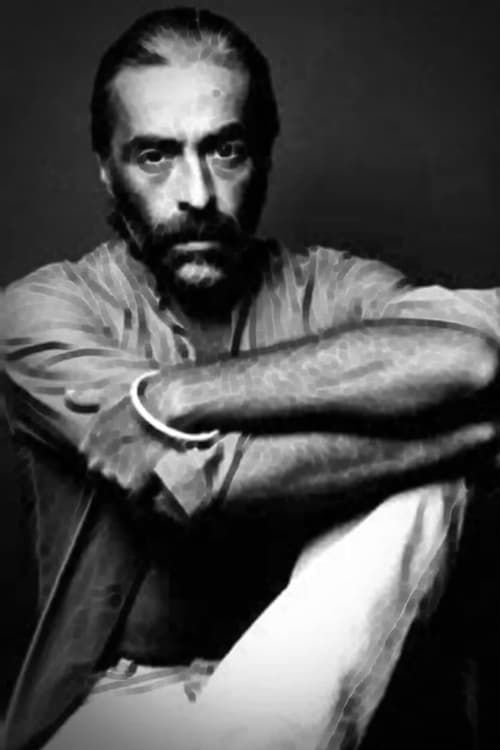
Paulo Villaça
Birth : 1933-01-01, Bauru, São Paulo, Brazil
Death : 1992-01-24
History
Paulo Barbosa Villaça (Bauru, São Paulo, 1933 — Rio de Janeiro, Rio de Janeiro, 1992) was a Brazilian actor and theatre director.
Villaça worked as a Literature professor, journalist and advertising manager before his breakthrough as an actor in the 1960s. He achieved success by playing the main role in Rogério Sganzerla's "The Red Light Bandit" (1968).
During the 1970s, Villaça was married to famous Brazilian actress Marília Pêra. He played parts in over 20 films, being a reconizable figure in productions from the Brazilian Cinema Marginal movement during the 1960s and 1970s. He also had a solid career at the theatre, where he acted in the Teatro Oficina company and played roles in many important plays, such as "Navalha na Carne", "Fala Baixo Senão eu Grito" and "Grande e Pequeno". In TV, he appeared in shows such as Rede Globo's "O Bofe" and Rede Bandeirante's "Os Adolescentes", limited series like "Quem Ama Não Mata" and "Chapadão do Bugre" and soap operas such as "Helena" and "Vale Tudo". His last film was 1992's "Perfume de Gardênia", which paid homage to his iconic role of The Red Light Bandit.
He died in Rio de Janeiro from HIV-related health problems, and was buried in São Paulo.
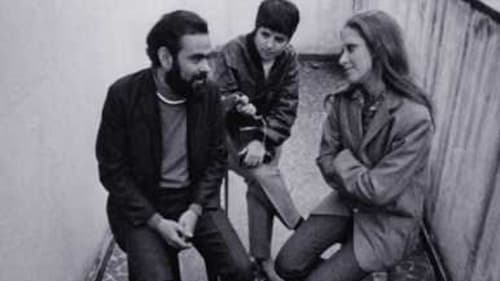
An authentically marginal cinema created in Catholic university in Brazil. One of the most intriguing and imaginative moments in modern cinema in the voice of some of its select conspirators—with Carlos Reichenbach at the lead—, and through the most razing flow of images that can possibly be conceived.

A short film made with unused footage from The Red Light Bandit and Carnaval na Lama.
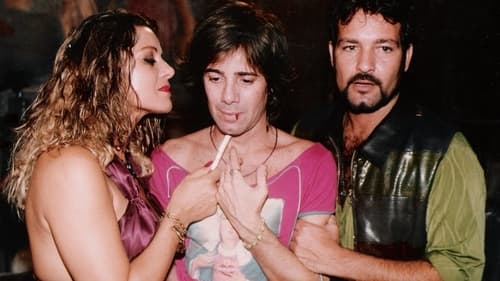
In Memory Of
The story of three characters in a brothel room: the prostitute Neusa Sueli, the gigolo Vado and the homosexual Veludo speak of their lives and expose their marginality.

Self
"Portraits and excerpts from Brazilian films from all times. Actors, directors and images that affirm cinema."

Driver who was left by his wife, who wanted to try a career in the movies, has to deal with their son's revolt when the latter finds his mother, whom he thought dead, singing in a nightclub.

Assistant Director
In Rio de Janeiro, after an altercation with his father and mother, a young man named Bebeto kills his family and goes to a movie theater, where he watches four weird vignettes.

Mr. Watts
When Cunda, a man living deep in the Brazilian rainforest, is bitten by a snake, he has a hallucination of four chimpanzees. Once he recovers, he is shocked to find the four chimpanzees waiting for him at home, and, believing them to be special, decides to take them to the city in order to sell them.

Quincas Borba
Based on a book by Machado de Assis (1839-1908) and adapted to the present time. After the death of the philosopher Quincas Borba, his friend and disciple Rubiao inherits all he possessed: his fortune, his dog, his philosophy and the germ of his madness. Rubiao's passion for Sofia, a friend's wife, places him at the center of a game in which she is the main piece while he is the only one who ignores the rules. The story of a dreamer and delirious man facing a reality to which he is not prepared.

Dr. Falcao
The story of the great train robber Ronald Biggs.

Desdino
Former athlete enters an old cinema in São Paulo's decadent city centre and meets an intriguing and mysterious woman, very much like the leading lady on the film. He gets involved with her and her problems and in no time is being accused of a crime.

Thiers Galvão de França
Eternamente Pagu is a biographical film about Patrícia Galvão, best known as Pagu, a Brazilian political, literary and artistic activist. An important figure of the Brazilian Modernism, Pagu was also a militant for the Brazilian Communist Party after she married writer Oswald de Andrade. She broke up with Andrade and, as a journalist was arrested by the Dictatorship of Getúlio Vargas. After she left prison, she abandoned Communism in favor of Trotskyist Socialism, married Geraldo Ferraz, and started a career as theatre director.

Maragato
Biography of Brazilian congressman Tenório Cavalcanti, who used to appear in public carrying a machine-gun, and wearing a black cloak.
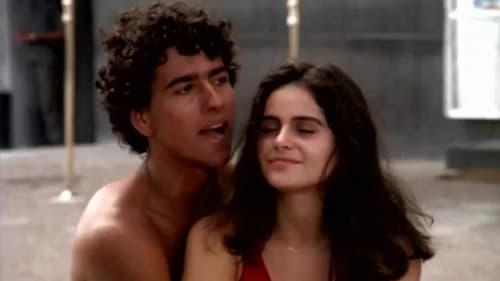
Armando
Movie director in his forties and in existential crisis falls in love with an unknown teen girl he sees walking down the streets, without knowing she's the daughter of the woman he's having a relationship with.

Joel
Adaptation of the series shown in 1986. Marcos and Lurdinha live in love in the 1950s. The young man is the son of separated parents and his mother, Glória, works as a cashier in a nightclub. The conservatism of the girl's family and the sexual repression of the time are factors that affect the couple's relationship.
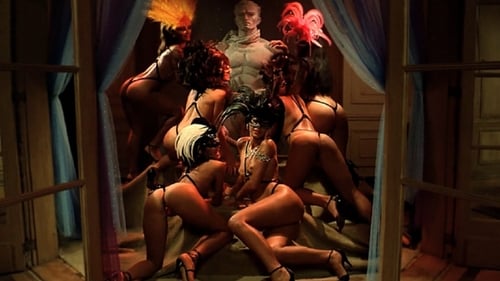
Dante
A public relations man is invited to guide an American millionaire during his stay in Rio de Janeiro. He gets involved in the most bizarre situations, from orgiastic mega-parties to confrontations with the police, meetings with drug dealers and movie stars, facing corruption and even murder.

Young guy from the poor Northeast region of Brazil comes to Rio de Janeiro to try his luck. Naturally, he is faced with many adversities along the way.

A caboclo's soul wanders through purgatory (or hell), visiting many places until he boards a ship whose destination is unknown.

Zionists hire a hitman to kill a Nazi war criminal exiled in a Latin American country, where he's being protected by the local dictator.

Director

Detetive Bira
In São Paulo, a businessman wants to rehabilitate street children, called "trombinhas", through a social project. After being discouraged by the police, he seeks help from the coach of the Santos Futebol Clube youth team.

Erasmo
In 1970, the Esquadrão da Morte (Death Squad)' crimes for the refinement of violence provoked a wave of reactions throughout the country. The photos of the victims, adorned by the skull, symbol of the group, caused an uncomfortable indignation. This is the story of Mateus Romeiro, the most famous of the policemen, who was part of the Homens de Aço (Steelmen) group, one of the factions in which the squadron was divided.

Otávio Menezes
In a financially troubled farm in the 1930's, its depraved owners become attracted to their new handsome and young handyman.

Malandro
Solange is a recently married young woman whose wedding night did not end well. After constant fights with her husband, she decides to live through her sexual frustration by sleeping with strangers she picks up on crowded buses in Rio de Janeiro.
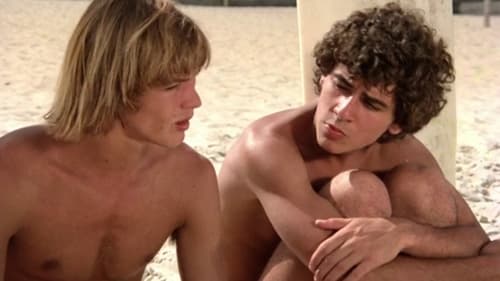
André
Toquinho is a young man living in Marechal Hermes, a poor neighborhood in Rio de Janeiro, together with his widow mother and a younger sister. Although he is poor, he is also ambitious, and wants to change his life. He spends all his time on the beach, at Arpoador, Ipanema, where he dreams to become a famous surfer. Besides, he usually finds Patricia there, a rich and liberated young woman, whom he likes a lot. To impress Patricia and satisfy some of her wishes, he lets himself be seduced by André, a gay guy who, in return for his sexual favors, promises him a trip to Hawaii for a surf championship.
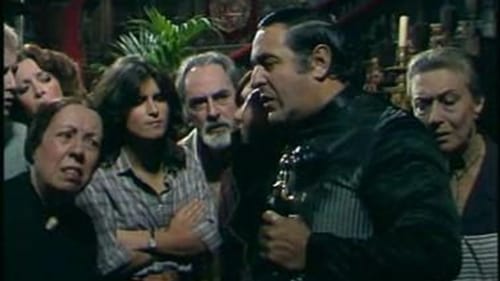
Rogério
Tadeu, a poor lad from the Northeast of Brazil, comes to Rio de Janeiro to try his luck. His good looks and education win him the favor of rich people. In his spare time, he becomes the favorite among lonely and rich ladies. Soon he gets involved in trouble.

In the 17th century, to guarantee the possession of the region, disputed with Spanish and Dutch pirates, the Portuguese built a fort at the point where the dark waters of the Rio Negro meet the clear waters of the Rio Solimões, forming the Amazon River. Around the fort, the city of Manaus was born. Alli lived the Manaús Indians, warriors who worshiped Manari, the Good, and from him they received the order to fight all the invaders of the forest.

Villegagnon
Inspired by "Voyage to the land of Brazil" by Jean de Léry, this short follows the adventures of Nicolas Durand, from Villegagnon, and the estabilishment of a French colony in 16th-century Rio de Janeiro.

Four thieves enter a house and terrorize a family.

A millionaire lives in a sinister cottage where strange events unfold. A damned creature, he transforms himself in a werewolf and leads a following whose adepts spread horror and despair in the neighboring city, becoming themselves a clan of assassins. One day, the werewolf confronts Branca Justiça (White Justice), who summons benign forces to scathe them and frees him of his own wickedness.

Elias Ruivo
Unable to endure the idea that he would go without punishment, a criminal's victim chases him the length and breadth of Brazil for a showdown.

Friend
The daily life of a Brazilian escort.
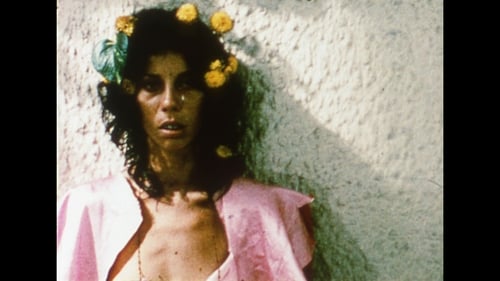
The quasi-fictional story of transgender sex workers living in Rio de Janeiro's swampy red light district, who are joined by a group of hippies and a runaway stockbroker, "Mangue-Bangue" is the paradigmatic expression of the post-1968 spirit of desbunde, the Brazilian slang catchword for "sex, drugs, and rock 'n' roll".

Dr. Grilo
Sônia and her homosexual brother are both believed by their mother to be possessed by the devil. She works as a prostitute in the streets of Copacabana and he’s a servant who falls madly in love with his employer.

Conde

Daily scenes of a grotesque family living in the metaphorical island of Babaloo.

A criminal reporter and his guru-like friend go around together, but a crossroads will lead them to different ways.

Ramon
Ângela Carne e Osso (Angela Meat and Bone), a young nymphomaniac, lives surrounded by delinquents, and exerts intense allure on them, dominating them all with her erotic power.
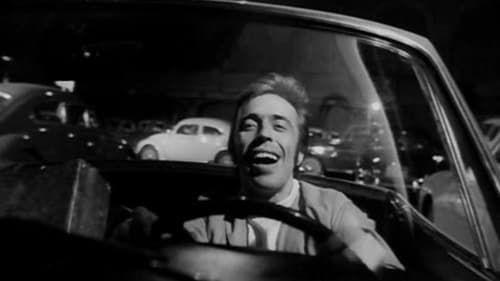
Associate Producer
Born and raised in the misery of Brazilian slums, Jorge becomes a luxury house burglar in São Paulo and gets nicknamed "The Red Light Bandit" by the sensationalist press. In addition to wearing a red flashlight, he talks to his hostages in an irreverent tone and makes bold breakthroughs to later spend the money extravagantly. His world is the decadent neighbourhood of Boca do Lixo.

Bandido da Luz Vermelha
Born and raised in the misery of Brazilian slums, Jorge becomes a luxury house burglar in São Paulo and gets nicknamed "The Red Light Bandit" by the sensationalist press. In addition to wearing a red flashlight, he talks to his hostages in an irreverent tone and makes bold breakthroughs to later spend the money extravagantly. His world is the decadent neighbourhood of Boca do Lixo.

Basbaum
Edson is having an affair with a left-wing aspiring movie director during Brazil's military dictatorship years. He tries to get some easy money for her film, but ends up being arrested and tortured as his torturers suspect he's involved in a plot to overthrow the militar government.

